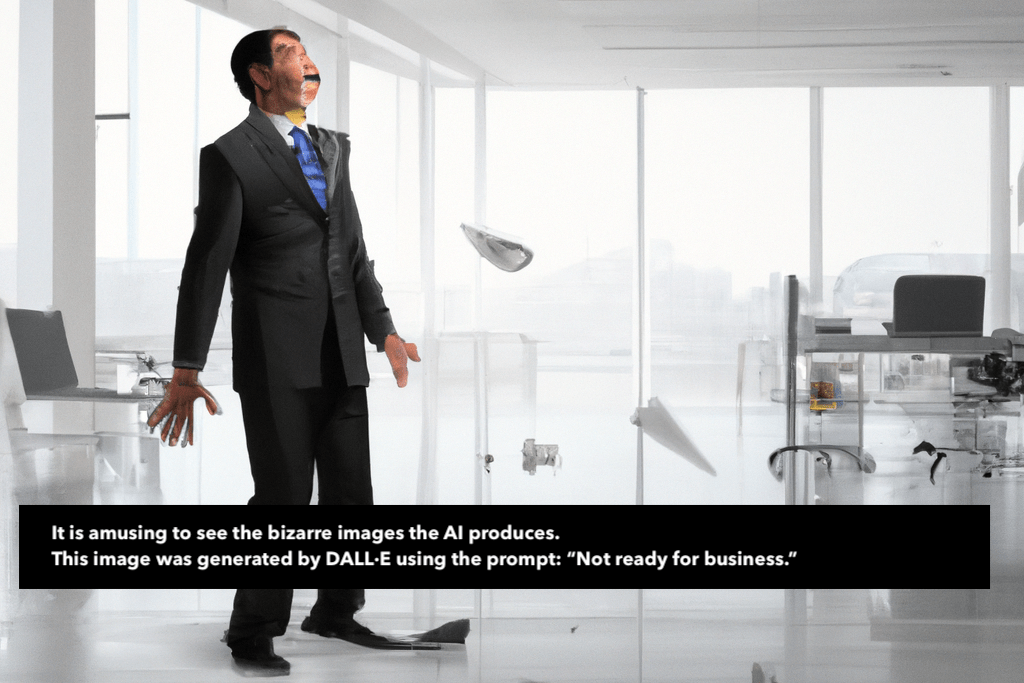
Technosludge
One of my greatest frustrations in life is getting consistently held back from achieving my goals because I have to muck around with technology.
One of my greatest frustrations in life is getting consistently held back from achieving my goals because I have to muck around with technology.
There is so much text being generated every day that talks about ChatGPT, and other AI topics. It can be difficult to know what is worth reading, and what is not.
The creators of generative AI systems like ChatGPT don't understand what they have created. In other words, not only is generative AI magic to its users, it is also magic to its creators.
Are open source LLMs too dangerous?
GPT-4 was released this week, a mere three and a half months after unveiling ChatGPT. In this article, using mixed metaphors, I briefly explore the challenge this poses to AI Application engineers and users alike.
Generative AI is a game changer, and you need to start preparing right now. In this article I explain what generative AI is, why it is different from anything we have seen so far, why it will have an enormous impact on small businesses, and what you can do about it right now.
As part of my experiments with ChatGPT, I asked it to perform a straightforward task. I thought it could perform this task easily, but I was wrong.
Chatbots ain't the brightest. They require lots of care and attention just to be able to make simple conversation, making them costly to use in many situations. With some development, ChatGPT could change all that.
While the Internet is still buzzing with examples of all the ways that you can use ChatGPT for a number of tasks that were previously unimaginable, actually integrating ChatGPT into a serious business workflow is still out of reach.
In a world where logic and reason are highly valued, our thinking has been trained to be structured and analytical. Technologies like OpenAI's ChatGPT will change that.
For small businesses, the huge quantities of data required and the cost of implementing processes have been impediments to adopting AI. Not any more!
Now that ChatGPT has taken the world by storm, we can expect the domain of AI Application Engineering to rapidly gain in prominence. To avoid confusion, we need to get our terminology straight.
Are you looking to improve the efficiency of your current business processes but don't know where to start? The bottom-up design approach can help you capture and analyze your current process, identify areas for improvement, and make incremental changes over time, all without disrupting your day-to-day work.
I am convinced that the release of technologies like ChatGPT will change the world. To ensure I ride the wave, I have made a challenge to myself: make myself redundant!
People tend to adapt themselves to technology rather than using it to live the lives they want. As much as we like to think we're in control of technology, it's often the other way around.
ChatGPT is the talk of the town and for good reason, but with all the noise surrounding it, it's hard to know what to make of it.
Just like the robotic exoskeleton enhances physical abilities, ChatGPT can help people perform their work more efficiently and effectively.
Flow-based programming could be a powerful tool for non-technical people to automate business tasks.
As a COE, I have many tasks that I need to do on my own. In my new quest to make full use of AI in my work, I wanted to take Apache NiFi for a spin.
Like it or not, we have hit an inflection point. It is time to adapt or die.
As a Chief of Everything (COE), it's important to understand the difference between strategy and tactics and how they work together to achieve success.
Trusting and empowering others is not only important for the growth and development of your team, but it also has a number of other benefits for your organization.
Delegation is not a one-time process — it is important to follow up and provide feedback in order to ensure that tasks are being completed as expected.
Delegation is not just about handing off tasks to others – it is also about providing clear instructions and expectations so that the tasks are completed successfully.
Delegating is not just about handing tasks off to anyone who is available – it is important to choose the right people.
For the COE, effective task delegation is key to managing workload and maintaining productivity and well-being.
Being a COE is not without its challenges, and COEs must be able to navigate a range of unique obstacles in order to be effective in their role.
The Chief Everything Officer is a hybrid of traditional executive positions, such as CEO, COO, and CTO.
A COE is responsible for overseeing and managing a wide range of tasks and responsibilities within an organization, with the goal of driving innovation, change, and success.
Although there are some similarities between the COE and the solopreneur, there are a few important differences. Which are you?
A Chief of Everything (COE) oversees and manages a wide range of responsibilities within an organization, with the goal of driving innovation, change, and success. Does this sound like you?




























